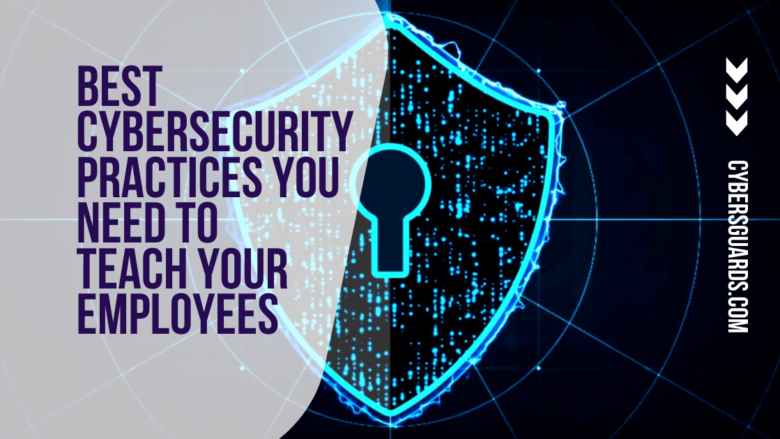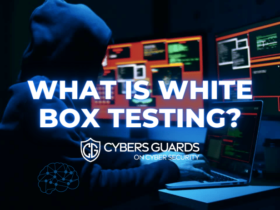In today’s world, cybersecurity is crucial. It’s not just an issue for businesses with significant financial investments – it’s something that every company should be taking seriously. Unfortunately, many companies don’t have a clear understanding of what cybersecurity means, or how to put in place the practices necessary to protect their data and systems from attack. In this article, we’re going to take a look at some of the basics of cybersecurity – including what it is, why it matters, and what steps you need to take to protect your business.
Cybersecurity Threats
Employees need to be aware of the cybersecurity threats that exist and be able to take steps to protect themselves. This includes understanding how to protect their personal information, being aware of phishing scams, and knowing how to stay safe online. Here are some cybersecurity practices that you should teach your employees:
- Protect your personal information: Make sure your employees know how to protect their personal information, including passwords and credit card numbers. Educate them about common phishing scams and make sure they know how to identify them.
- Stay safe online: Encourage employees to use a secure browser and email address when browsing the web and using email. Make sure they understand the importance of not clicking on unknown links, downloading unsolicited attachments, or sharing personal information on social media platforms.
- Be vigilant when downloading software: Make sure employees only download software from trusted sources and keep up-to-date on the latest security threats. Install software updates as soon as they become available and educate your employees about common malware types.
- Stay alert for ransomware: Cybercriminals are increasingly targeting businesses with ransomware attacks, which lock users out of their computers until they pay a ransom fee.
Ways Employees Can Be Complicit in Cyber Attacks
One of the most insidious ways an employee can be complicit in a cyber attack is by failing to take basic cybersecurity measures. Even if your employees know about basic cyber security practices, if they don’t take the necessary precautions to protect their personal information, they could be putting themselves and their company at risk.
Here are Three basic cybersecurity practices your employees should take to protect themselves:
- Use strong passwords: Passwords are one of the most important elements of cyber security, and you should ensure your employees use strong passwords that are difficult to guess. You should also require your employees to change their passwords regularly, and make sure they aren’t using easily guessed words or easily accessible personal information in their passwords.
- Keep personal information secure: Your employees should always keep personal information like Social Security numbers and bank account information secure. They should also never share this information online or with anyone else who isn’t authorized to have it.
- Protect computer systems: Employees need to be careful about what software they install on their computers and how they access it. They shouldn’t install anything that’s not required for work, and they should always use caution when downloading files from unknow sources.
Guidelines for Implementing a Cybersecurity Program
The following are guidelines for implementing a cybersecurity program in your organization.
- Establish baseline security requirements. Before you can start developing a cyber security program, you need to establish baseline security requirements and identify which systems need to be protected. This will help prioritize your cyber security efforts.
- Educate employees about cyber threats. Most cyber attacks are the result of unsuspecting employees clicking on malicious links or downloading infected files. It is essential that employees are educated about the dangers of online threats and how to protect themselves from them.
- Implement formal security procedures. Once you have established baseline security requirements, it is important to implement formal security procedures and train employees on how to use them. Cybersecurity measures should be implemented as part of an overall information security policy.
- Secure accessible systems. Insufficiently protected systems can give hackers access to sensitive data, personnel records, and financial information. To protect these systems, it is important to secure access using appropriate authentication and authentication technologies such as biometric identification or smart cards.
Best Cybersecurity Practices You Need to Teach your Employees
Employees need to understand the basics of cybersecurity in order to protect themselves and their company’s data. Here are four practices that you can start teaching your employees today.
- Educate employees about the importance of cyber security. Make sure everyone knows the dangers of cyber attacks and how to protect themselves. Teach them about common cyber threats and how to identify them, as well as how to prevent them from happening in the first place.
- Enforce strict security protocols at all times. Make sure all devices are protected with up-to-date anti-virus software, firewalls, and other security measures. Restrict access to sensitive data only to those who need it and keep passwords secure. Regularly update systems and software to ensure they are protected against latest threats.
- Be vigilant when browsing the Internet and using online resources. Always use caution when clicking on links or downloading files from unknown sources. Regularly scan downloaded files for viruses before opening them. And be sure to take sensible precautions when online banking, shopping, or doing any other online activities.
- Use proper passwords for all accounts and systems. Store passwords in a secure location, away from hackers.
10 Best Cybersecurity Practices You Need to Teach your Employees
Here is the deep list of 10 best cyber security practices you need to train your employees to keep hackers away!
#1. Protect your data
Employees need to be aware of the importance of cybersecurity practices in order to protect their personal data. Here are some tips to help them:
- Encrypt your data. If your data is not encrypted, it is vulnerable to being stolen by hackers.
- Use a password manager. This ensures that you are using strong passwords for all of your accounts, including your online accounts.
- Regularly update your software and firmware. Hackers can exploit vulnerabilities in these products to steal your data.
- Be careful about what you share online. Always be mindful of the information you share online, especially if it could be used to identify you Personally Identifiable Information (PII).
- Keep your computer and devices up-to-date with the latest security patches. Hackers often target outdated software and devices, which makes them easier to exploit.
#2. Beware of unknown emails, pop-ups, and links.
- Cybersecurity is important for both your business and your employees. Make sure to educate them on the importance of cybersecurity practices and how to protect themselves.
- Be suspicious of emails, pop-ups, and links you don’t know. If it feels too good to be true, it probably is. Don’t click on any links in unsolicited emails or pop-ups, and don’t open any attachments unless you’re sure you know who sent them and why.
- Use strong passwords and other security measures for your computer and accounts. Make sure employees know how to create strong passwords and use two-factor authentication when possible.
- Keep an eye out for phishing scams – these are emails that seem to come from legitimate sources but are actually designed to steal your login information or other sensitive data. Don’t give away personal information or enter your password into any unfamiliar websites unless you’re absolutely sure you want to do so.
#3. Use strong password protection.
Password protection is one of the most important cybersecurity practices you can teach your employees. Make sure all users are required to create strong passwords that are unique and difficult to guess. Also, make sure passwords are not easily accessible on any computer or device.
#4. Secure Wi-Fi connectivity
Employees need to be familiar with cybersecurity practices in order to protect themselves and their company’s data. One way to achieve this is by providing employees with secure Wi-Fi access.
When using public Wi-Fi, be sure to use a VPN when streaming or downloading sensitive information. This will encrypt your traffic and help protect you from unauthorized access. Additionally, be sure to regularly change your passwords and keep them confidential.
When using company resources, make sure you are using secure protocols such as HTTPS. By doing so, you can ensure that your data is protected against interception and theft. Furthermore, be sure to install anti-virus software and keep it up-to-date. This will help to protect your computer from viruses and other malware attacks. Finally, keep backups of important files in case of emergency. This will help you if something happens to your computer and you need to restore its contents.
#5. Enable firewall protection
Setting up a firewall on your network is one of the most important steps you can take to protect your business from cyber threats. A firewall helps to protect your computer systems by blocking access to unauthorized networks and ports.
If you don’t have a firewall protecting your network, it’s important to install one as soon as possible. Here are some tips to help you get started:
- Make sure all of your computers are connected to the same network.
- Enable the built-in firewall in your Operating System (OS).
- Install a firewalls software package like Avast, Panda Security or Bitdefender.
- Configure the firewall rules to allow only specific types of traffic, such as e-mail, web browsing, and VoIP calls from known sources.
- Verify that all of your firewalls are enabled and up-to-date by checking the manufacturer’s website or by using a security testing program like IPSec Test Suite from Qualys or Nessus.
#6. Lock up all devices before leaving
It’s no secret that employees love to take their personal devices with them when they leave the office. Unfortunately, this habit oftentimes leads to sensitive and confidential information being exposed on unsecured devices.
To combat this problem, you need to implement a policy that requires employees to lock up all devices before leaving the office. This includes both personal and work-related devices.
By requiring employees to lock up their devices, you will significantly reduce the chances that data or confidential information will be lost in the event that a device is stolen or misplaced. In addition, it will help reinforce employee accountability for protecting company confidential information.
If you are not already requiring employees to lock up their devices, now is the time to implement a policy – it’s one of the most effective ways to protect your business from cyber threats.
#7. Install an antivirus
When it comes to cyber security, you need to install an antivirus program on all of your computers. Not only will this help keep your computer safe from viruses and malware, but it can also help ensure that your data is not stolen. You should also encourage your employees to use antivirus software, as well as educate them on the importance of cyber security.
#8. Back up your files
Teach your employees how to back up their files regularly. This will help ensure that they have a copy of their information in case of an emergency. Additionally, Instruct them on the importance of password protection and creating unique user names and passwords for each website.
#9. Use third-party controls
One of the most important steps you can take to protect your business from cyberattack is to ensure that your employees are up to date on cybersecurity practices. Training is one of the best ways to do this, and there are a number of different cybersecurity trainings you can choose from that will suit your specific needs.
Below are six cybersecurity practices you should teach your employees:
- Understand how cyberattacks work.
- Use strong passwords and keep them updated.
- Keep devices and software up-to-date.
- Don’t store personal information online.
- Protect yourself and your business with anti-virus protection and firewalls.
- Report any suspicious activity to security officials immediately.
#10. Provide ongoing cybersecurity training
As your business grows, you may find yourself in a position where you need to provide cybersecurity training to employees. Consider the following tips when planning your cybersecurity training program:
- Make sure your program is tailored to the needs of your employees. Some employees may need more intensive training than others.
- Periodically audit your program to make sure that it is keeping up with current cybersecurity threats.
- Keep your program accessible online and on mobile devices. This way, employees can access it from any device they have access to.
- Make sure employees know about the benefits of taking cybersecurity precautions. A secure workplace can reduce the risk of data theft and other cyberattacks, which can have a negative impact on your business’s bottom line.
Data Leak Needs to be avoided
Data leak is one of the most common cyber security threats. It can happen when confidential information is improperly accessed, shared, or transmitted. Here are some cybersecurity practices you need to teach your employees to avoid data leak:
- Encrypt data at all times: Encrypting sensitive data ensures that it cannot be accessed by unauthorized individuals. It also helps protect against data leak in the event that a device or system is stolen or hacked.
- Use strong passwords: Make sure passwords are strong and unique. Use a combination of letters, numbers, and symbols. Don’t use easily guessed words or easily accessible personal information like birth dates and addresses.
- Keep devices secure: Keep devices that contain sensitive information locked and password protected at all times. Prevent employees from accessing devices without authorization.
- Monitor activity: Regularly monitor activity on systems for signs of unauthorized access or data leakage. If you notice anything suspicious, contact your IT department immediately.
Conclusion
It’s no secret that businesses are increasingly being targeted by cyber criminals. In fact, a study showed that more than two-thirds of small businesses have been hit with a cyberattack in the past year. With so much at stake, it’s important to ensure your employees are up to date on cybersecurity practices and understand the risks associated with online activity.
Here are Four cybersecurity practices you should make sure your employees know about:
- Educate employees about common online security threats. Warn them about scams (like fake invoices or malware downloaders), phishing attacks (where hackers try to trick you into giving away personal information), and ransomware (a type of virus that locks down computer files until money is paid).
- Make sure devices are protected from spyware, viruses, and other forms of malware. Remove any unused software and install anti-virus software on all computers and mobile devices used by employees.
- Keep passwords secure: Don’t share passwords with anyone, don’t use easily guessable passwords like “password”, and make sure users change their passwords regularly.
- Educate employees about data protection: Explain the importance of protecting Personally Identifiable Information (PII) — such as email.











Wow. This was very informative.
You covered everything I could think of. I run a small business, and these are going to come in handy.
Does this app Xnspy work? Or is it a hoax?
Yes it works!
Thank you…
Thank you. Follow us for more updates!